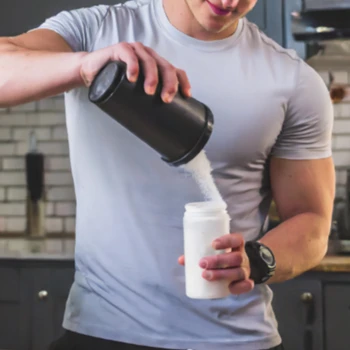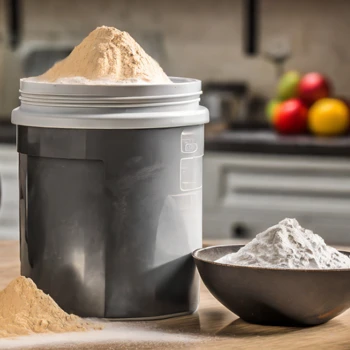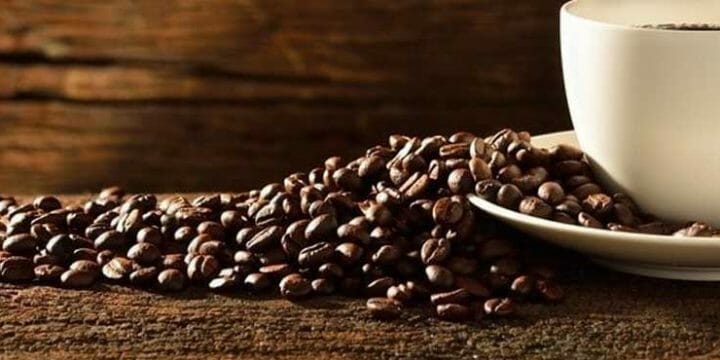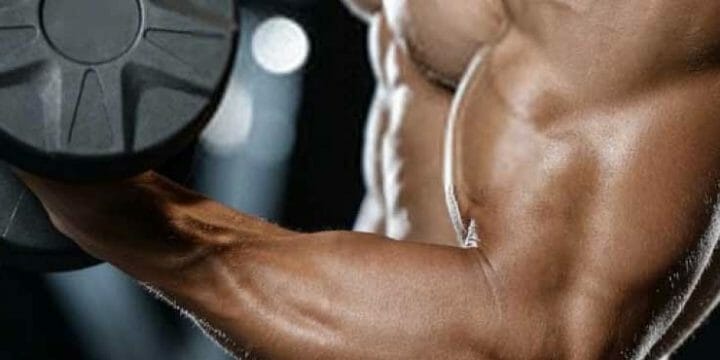As a personal trainer with years of experience, I've encountered clients who complain about bloating after taking pre-workouts. Collaborating with my dietitian, we've uncovered the reasons and compiled the information into this article.
Keep reading and find out the common reason for bloating after your pre-workout and discover effective ways to address it.
Quick Summary
- Pre-workouts can make you bloated because of magnesium, and sodium bicarbonate.
- Creatine, artificial sweeteners, arginine, caffeine, and lactose are other ingredients in pre-workouts that might cause bloating.
- You can get rid of pre-workout bloating in 5 practical ways; eating ginger, drinking warm water, taking probiotics, doing mild workouts, and avoiding chewing gums.
- In my opinion, a bloating-free workout experience often starts with choosing the right pre-workout ingredients.
Can Pre-Workouts Cause Bloating?

Yes, pre-workouts can cause bloating due to compounds like sodium bicarbonate and magnesium that induce stomach distress and dehydration.
Research by Eating Well also shows that using pre-workouts might indeed increase your chances of dehydration [1]. When your body does not have sufficient water, your stomach holds water to counteract, resulting in apparent bloating.
Digestion can become sluggish, and microorganisms in your digestive system may react by generating gas, making you feel bloated.
It's essential to understand the role of gut health in this process. A balanced gut microbiome ensures efficient digestion, but certain pre-workout ingredients might disrupt this balance.
“People who eat high fiber diets are more likely to experience bloating if their high fiber diet is protein-rich as compared to carbohydrate-rich.”
- Science Daily
To help you minimize risks, I’ve tried and tested many pre-workouts for safety and efficacy and had my clients try them out until we came up with an ultimate list:
5 Pre-Workout Compounds That May Cause Bloating

I've observed as a trainer that many pre-workout supplements can induce stomach issues. The problems often stem from components such as caffeine, lactose, creatine, whey protein, arginine, artificial sweeteners, and magnesium which I've seen affect my clients during training sessions.
Some of the common gastrointestinal signs include bloating, nausea, acid reflux, and diarrhea. Let's examine the compounds in detail.
1. Creatine
Pre-workouts mixed with creatine might induce bloating in some consumers.
According to studies published in the Journal of Athletic Training, Creatine greatly enhances water retention [2].
It causes a feeling of stiffness and fullness by increasing water preservation in body cells. This is exactly what happened to one of my clients as he was going through the creatine-loading phase.
However, if you choose pre-workouts with a moderate amount of creatine, you can easily avoid creatine bloating.
2. Artificial Sweeteners

Artificial sweeteners (aspartame, sucralose, and others) and their compounds linger in the gastrointestinal system for prolonged periods, disrupting the gut microbiota.
A 2014 study published in the National Library of Medicine on the relationship between sweeteners and glucose intolerance found that the action of synthetic sweeteners has a harmful impact on gut microbial populations [3].
As a result, changes in intestinal microbiota composition can cause various digestive problems such as bloating, diarrhea, and irregular bowel movements.
3. Caffeine
Caffeine induces bloating by:
- Increasing stomach acid levels, which irritates your gut and makes you feel bloated when caffeine is consumed on an empty belly, according to Healthline [4].
- The fact that caffeine is a diuretic means it makes you pee more often. This can cause dehydration which slows down your digestion process.
4. Arginine

According to a study published in the National Library of Medicine, arginine impacts gut secretory pathways, causing water and electrolyte release in the gastrointestinal tract and gut enlargement [5].
Furthermore, arginine possesses laxative characteristics that, when mixed with excess water production in the gut, can result in dehydration and diarrhea, as per the Mayo Clinic [6].
However, from my experience as a user, I've found that smaller dosages seldom produce these effects.
5. Lactose
Lactose is a milk sugar that can cause gastrointestinal problems in people who are incapable of manufacturing lactase, an enzyme essential for digesting lactose.
Lactose-deficient persons experience bloating visceral hypersensitivity and flatulence when they consume lactose, according to scientific evidence published by Research Gate [7].
“Lactose, the sugar in milk, travels intact throughout your digestive system, pulling water into your gut, causing gas, bloating, and lots of discomfort.”
- Karen Ansel, R.D.N.
If you have a food allergy, avoid pre-workouts that include lactose.
5 Ways to Get Rid of Pre-Workout Bloating

If you are feeling disturbed and bloated as a result of your pre-workout supplements, below are five techniques I often recommend as a fitness trainer to alleviate these symptoms:
1. Eat Ginger and Peppermint
As per research published by the National Institute of Health, ginger mixed with artichoke extracts is beneficial in relieving symptoms such as stomach discomfort, bloating, burping, fullness, and vomiting [8].
Other herbs used to treat gas and stomach discomfort include chamomile, basil, and peppermint.
2. Take Probiotics

Research published in the National Library of Medicine suggests that eating probiotics may aid in the elimination of stomach bloating [9].
Probiotics have helped many of my clients improve their digestive health. I often recommend probiotics, either in food or supplements, to promote better gut health.
3. Avoid Chewing Gum
Chewing gum can cause bloating because it leads to swallowing excess air. This can make you feel uncomfortable and affect your workout performance.
4. Mild Exercise

According to Healthline, mild physical exercise and taking the right supplement lowers bloating and promotes intestinal gas removal [10]. I've personally found relief from mild bloating by engaging in longer walks, gentle runs, or bike rides.
Additionally, the inclusion of stretching and yoga activities in my fitness routines has proven beneficial in reducing discomfort and bloating.
5. Drink Lukewarm Water
Lukewarm water relieves gastrointestinal membranes while also hastening digestive responses.
Drinking lukewarm water helps with bloating by streamlining food digestion and absorption, which relieves digestive issues and eliminates the bloated feeling, as per Healthline studies [11].
Maintaining proper hydration levels is crucial to minimize bloating, as dehydration can lead to water retention. Additionally, most side effects of pre-workout supplements are modest and temporary and can be prevented by choosing a proper supplement and taking fewer doses.
FAQs
Why Does My Stomach Get Bloated After Workout?
Your stomach gets bloated after a workout because, during exercise, your body produces cortisol, or the stress hormone, which can have an effect on fluid levels and cause water retention.
How Long Does Workout Bloat Last?
Workout bloat may last for a couple of weeks.
What Gets Rid of Bloated Stomach?
Physical activity during the day and taking a walk after eating can get rid of bloated stomach.
Does Beta-Alanine Cause Bloating?
No, beta-alanine doesn’t cause bloating, but it might cause other side effects like skin flushing and tingling sensations if taken in high doses.
References:
- https://www.eatingwell.com/article/8044310/pre-workout-supplements/
- https://www.researchgate.net/publication/10599501
- https://pubmed.ncbi.nlm.nih.gov/25440050/
- https://www.healthline.com/nutrition/coffee-on-empty-stomach
- https://pubmed.ncbi.nlm.nih.gov/17513449/
- https://www.mayoclinic.org/drugs-supplements-l-arginine/art-20364681
- https://www.researchgate.net/publication/255689223
- https://www.ncbi.nlm.nih.gov/pmc/articles/PMC4411465/
- https://pubmed.ncbi.nlm.nih.gov/10811333/
- https://www.healthline.com/nutrition/proven-ways-to-reduce-bloating
- https://www.healthline.com/health/benefits-of-drinking-hot-water
About The Author
You May Also Like






